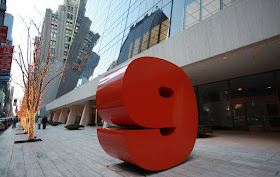seen @ Cinema Village, New York, NY
I saw the trailer for this when I saw the Toni Morrison doc earlier this summer and knew I wanted to see it—and so did Virginia. We both dug this portrait of legendary folk singer David Crosby, now in his lion-in-winter years after a lifetime spent taking way too many drugs and pissing off way too many friends and lovers, to the point where his music is what keeps him sane. Fortunately, his voice is still in excellent shape, even if the rest of him isn’t.
Producer Cameron Crowe needs little prompting to get Crosby to be absolutely candid about the many mistakes he made: turning on a lover to drugs, being a dick to his band mates—primarily The Byrds and CSN(Y); doing jail time. Still, he had a hand in creating some of the best, most powerful and relevant music of his generation. He is equally candid about the politics of the 60s and how his music gave him a platform to speak his mind during a tumultuous era. He may even feel survivor’s guilt for being alive while so many of his peers are gone, including a young woman he loved who died long before her time. He lays everything bare, and now, he continues touring and recording, worrying his wife sick but unable to tear himself away from the music, which has been his constant companion.
It’s a familiar story, no doubt, and to anyone who has followed Crosby’s career, little of it can truly be considered shocking, but to someone who was born after the Summer of Love, after Kent State, after Woodstock, I found it riveting.
I saw the trailer for this when I saw the Toni Morrison doc earlier this summer and knew I wanted to see it—and so did Virginia. We both dug this portrait of legendary folk singer David Crosby, now in his lion-in-winter years after a lifetime spent taking way too many drugs and pissing off way too many friends and lovers, to the point where his music is what keeps him sane. Fortunately, his voice is still in excellent shape, even if the rest of him isn’t.
Producer Cameron Crowe needs little prompting to get Crosby to be absolutely candid about the many mistakes he made: turning on a lover to drugs, being a dick to his band mates—primarily The Byrds and CSN(Y); doing jail time. Still, he had a hand in creating some of the best, most powerful and relevant music of his generation. He is equally candid about the politics of the 60s and how his music gave him a platform to speak his mind during a tumultuous era. He may even feel survivor’s guilt for being alive while so many of his peers are gone, including a young woman he loved who died long before her time. He lays everything bare, and now, he continues touring and recording, worrying his wife sick but unable to tear himself away from the music, which has been his constant companion.
It’s a familiar story, no doubt, and to anyone who has followed Crosby’s career, little of it can truly be considered shocking, but to someone who was born after the Summer of Love, after Kent State, after Woodstock, I found it riveting.











